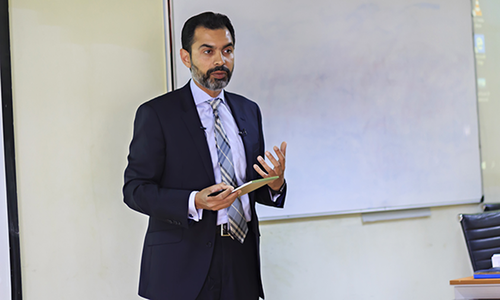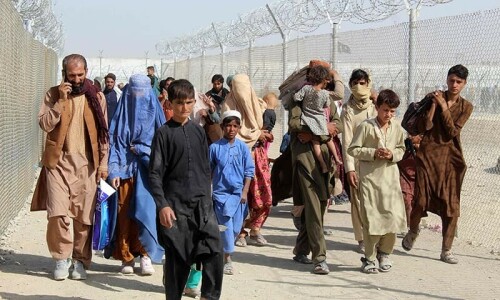KARACHI: The State Bank of Pakistan (SBP) has expressed doubts over the country achieving 2.1 per cent economic growth in FY21 and found the revenue target challenging as well due to decline in activity. For the last fiscal year, the SBP said the fiscal deficit for FY20 is likely to touch 9pc of GDP, where it was 4pc in the first three quarters.
According to the State of Pakistan’s Economy — Third Quarterly Report 2019-20 issued by the SBP on Thursday, Covid-19 was the main reason behind low economic growth in FY20, while also making FY21 challenging for government.
“Achieving the target of 2.1pc growth in real GDP during FY21 will require a parallel improvement in underlying demand,” said the document.
However, it requires effective utilisation of Public Sector Development Programme (PSDP) as per its allocation in the budget for FY21, while SBP schemes continue to support liquidity needs of both businesses and consumers, it added.
Fuel price hike to drive inflation, though not beyond forecast range
The report said the high demand for these schemes is indicating the stress faced by economic agents due to Covid-19; whereas, a growing number of approvals is increasing liquidity support that is going to be helpful in containing the pandemic.
“The gross revenue target of Rs6.57 trillion for FY21 is challenging as it entails significant growth over FY20 in a low economic activity environment,” said the report. “As we step into FY21, rollout of the much-needed socioeconomic support package may continue to keep government expenditures high in the coming months” it added.
As current expenditures, such as interest payments and pensions, are expected to consume major share of the revenues, the government needs to have an efficient debt management policy while ensuring PSDP expenditures as per budget during FY21, the SBP suggested in its report.
It further said the inflation outlook “is encouraging, although not without risks.” Although demand remains subdued, “the recent increase in petrol prices have tilted the risks on the higher side” of the 7-9pc range within which inflation is forecasted to come in by the end of FY20.
According to the publication, the external sector faces a “reasonably comforting” outlook, with the current account expected to remain bounded. “While higher competition among competing exporters amid recovering global demand in the post-Covid-19 setting may restrict any quick recovery in exports, imports are expected to remain subdued due to low domestic demand and soft international oil prices in the coming months,” it said.
Workers’ remittances may remain low as current disruptions and declining oil prices have strained economies of Gulf Cooperation Council countries, some cushion in services imports may come from restrictions on international travel, said the report.
However, it added that multilateral inflows may grow further and make up for some weakness in global capital inflows as more funds have been pledged by various international institutions to help governments cope with their pandemic-related relief efforts.
“Such was the severity of the Covid-19 shock that after 68 years, Pakistan’s real GDP is provisionally estimated to record a negative growth of 0.4pc for FY20,” said the document. Similarly, towards the end of Q3FY20, the fiscal sector’s performance also started to falter due to the large size of the shock.
“Notable gains in terms of primary budget surplus of the first half turned into a deficit during Q3FY20.”
The report said that Covid-19 related disruptions during March adversely affected the nascent recovery in large-scale manufacturing as its growth declined by 22pc on monthly basis. Agriculture remained largely immune from the impact of pandemic and grew during FY20.
“Faced with lockdowns and a lower level of output from the tradeable sectors, services sector growth deteriorated sharply towards the end of Q3FY20 and turned negative for FY20,” it concluded.
Published in Dawn, July 31st, 2020
















































